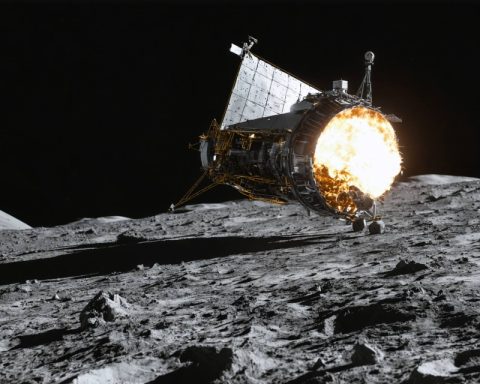Billionaire Elon Musk has found himself at the center of a political storm. A recent statement has sparked outrage in Pakistan, leading to unusual demands from its Parliament.
Musk, known for his wide-ranging influence and often controversial remarks, made allegations linking Pakistanis to heinous crimes associated with a grooming gang in the UK. This assertion provoked a strong response from Pakistani lawmakers, who have now formally requested an apology from Musk for what they consider damaging and anti-Pakistan rhetoric.
In light of these events, a pivotal development occurred regarding Musk’s venture into the country. Musk’s satellite internet service, Starlink, has sought approval to operate in Pakistan. However, lawmakers have stipulated that this approval hinges on Musk issuing a public apology. This demand indicates a significant strain on diplomatic relations, highlighting the impact of public figures’ statements on international collaborations.
Meanwhile, Musk’s ventures continue to unfold as he engages in various projects, including a public dispute with Sam Altman, the CEO of OpenAI. The rivalry emphasizes Musk’s active role in shaping the tech landscape, but it also illustrates the growing tensions that can arise from careless remarks in today’s interconnected world.
Global Repercussions of Celebrity Commentary
The recent backlash against Elon Musk’s remarks about Pakistan illustrates a broader trend in how public figures influence international relations and social discourse. Such incidents underscore the growing responsibility that celebrities, especially those with significant platforms, bear in shaping perceptions and fostering diplomatic ties.
Musk’s comments and the subsequent demands from Pakistani lawmakers signify a potential turning point in global communication dynamics. As digital platforms amplify voices, even a single tweet can strain ties between nations, as seen in the intensifying scrutiny toward influential figures. This incident is not merely an isolated occurrence but reflects a larger narrative in where social media’s immediacy clashes with the traditionally gradual pace of diplomatic discussions.
Moreover, as corporations like Musk’s Starlink seek to extend their reach into emerging markets, the intersection of business interests and social sensitivities becomes increasingly prominent. The condition for operating in Pakistan—a public apology—demonstrates the pivotal role of local sentiment in global economic expansion.
Environmentally, Musk’s ventures aim to bridge digital divides, potentially enhancing access to remote areas. However, this must be balanced with socio-political awareness, fostering partnerships based on mutual respect rather than mere profit. This evolving landscape suggests that future interactions between influential figures and nations will necessitate a more nuanced understanding of local contexts and cultural sensitivities, underscoring the long-term significance of mindful communication.
Elon Musk’s Controversial Remarks Spark Diplomatic Crisis: What You Need to Know
Introduction
Elon Musk, the billionaire entrepreneur known for his leadership in companies like Tesla and SpaceX, has recently stirred controversy with comments that have ignited political tensions between him and Pakistani lawmakers. This incident highlights the delicate balance between influential public figures and international relationships.
Background of the Controversy
Recently, Musk made allegations connecting some Pakistanis to a notorious grooming gang operating in the UK. This statement has received widespread backlash from Pakistani officials, who view it as damaging to their national image. In response, the Pakistani Parliament has requested a formal apology from Musk, marking a significant escalation in diplomatic strains.
Impact on Starlink’s Operations in Pakistan
As Musk seeks to expand his satellite internet service, Starlink, in Pakistan, he faces an unusual condition: the approval to operate in the country is contingent upon issuing a public apology. This demand illustrates the interconnectedness of technology and politics, especially when the remarks of a leading figure can impact business operations across borders.
Potential Consequences for Musk
1. Reputational Damage: Continuous controversies can harm Musk’s reputation, making it challenging for him to maintain business relations globally.
2. Operational Delays: If Musk fails to comply with the demands of the Pakistani Parliament, the launch of Starlink in Pakistan may face prolonged delays.
3. Increased Scrutiny: Musk’s comments are likely to draw closer scrutiny of his statements in global media, potentially affecting future investments and collaborations.
Broader Implications on Diplomatic Relations
The fallout from Musk’s remarks shines a spotlight on how influential figures can sway public perception and diplomatic relations. Lawmakers in various countries may now feel compelled to respond more aggressively to perceived slights from prominent individuals. This situation sets a precedent for political accountability from business leaders.
Opportunities for Change and Growth
– Strengthening Cultural Relations: Should Musk engage constructively with Pakistani leaders, it could pave the way for better cultural and technological collaboration.
– Promoting Responsible Speech: This incident raises awareness about the impact of public commentary on social issues, stressing the need for leaders to communicate responsibly.
Conclusion
As Elon Musk navigates this complex situation, it serves as a reminder of the power wielded by public figures in shaping international discourse. The demand for an apology from Musk underlines the necessity for sensitivity in a globalized world where words carry significant weight. The resolution of this conflict could redefine how technology companies approach entry into new markets and engage with local cultures.
For further insights on geopolitical events and influential personalities, you can explore additional resources at BBC News or CNN.

















